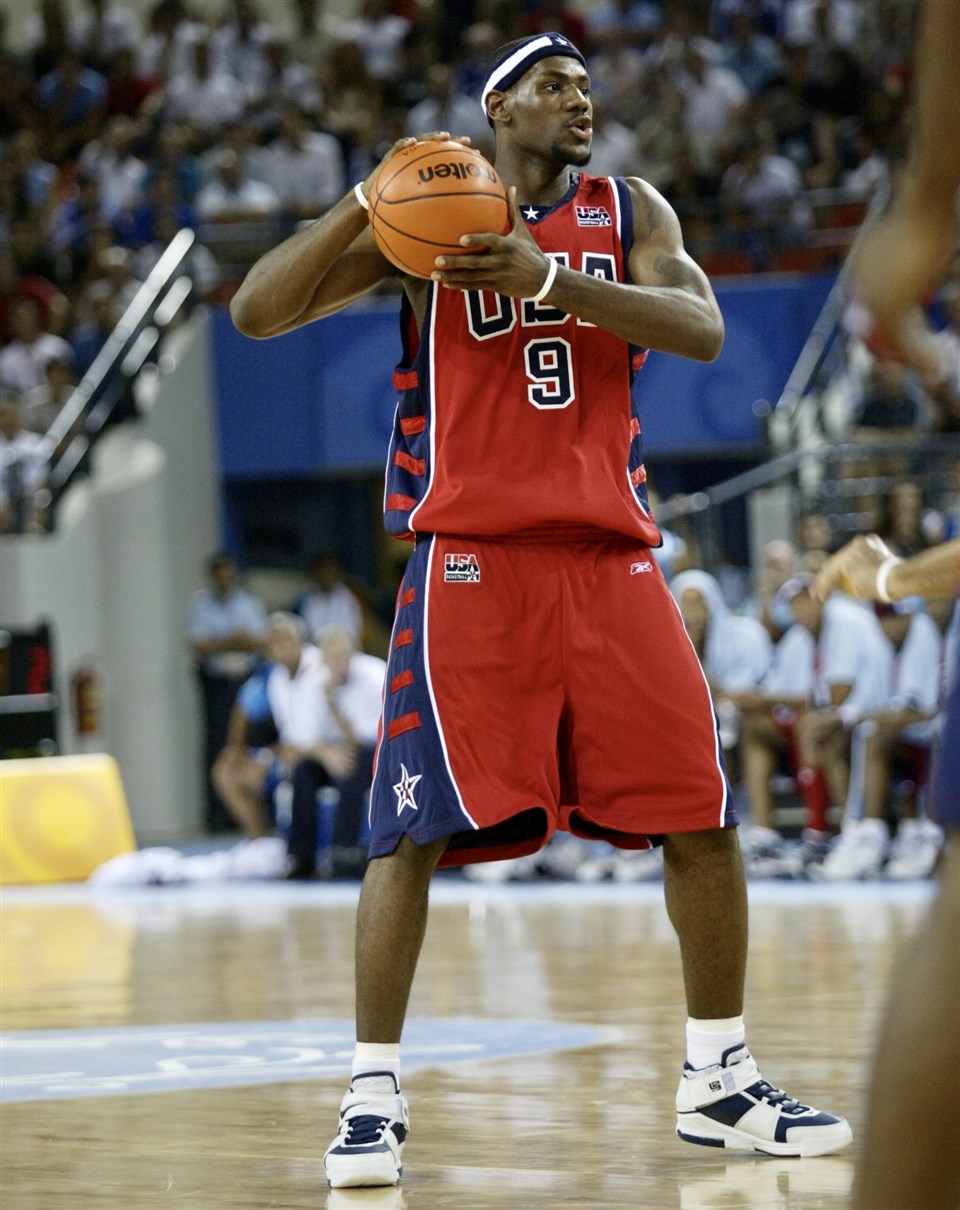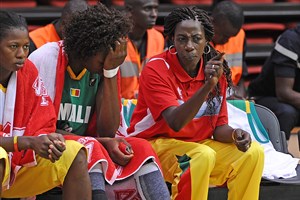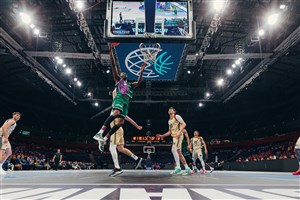
Jordan and LeBron: Who was better in the USA shirt?
VALENCIA (Jeff Taylor's Eurovision) - Michael Jordan and LeBron James. Remarkable players in different eras.
Both won NBA championships, collected league MVP awards and made numerous appearances in All-Star Games. Each led the United States to two Olympic gold medals.
Was one better in the USA jersey than the other? Judging Jordan on the immediate impact he made while leading the Americans to gold at the Los Angeles Olympics, and then as the best player in the Dream Team eight years later, it's tempting to say he was better. But let's look closer at the cases of each.
Back in the spotlight because of The Last Dance documentary now showing on Netflix, nostalgia has kicked in. We're remembering just how incredible Jordan was. He was already one of the best players in the world, even before he stepped onto an NBA court.
At the Los Angeles Olympics in 1984, Jordan, who had a glittering career at the University of North Carolina while playing for Hall of Fame coach Dean Smith, averaged 17.1 points per game and the USA ran roughshod over all of their opponents, winning by an average of 32.1 points per game.
"HE'S THE BEST ATHLETE. HE'S ONE OF THE BEST COMPETITORS. HE'S ONE OF THE MOST SKILLED PLAYERS, AND THAT TO ME MAKES HIM THE BEST BASKETBALL PLAYER THAT I'VE EVER SEEN PLAY."
The Jordan-led USA squad included his future USA 1992 Olympic teammates Patrick Ewing and Chris Mullin.
How good was he? The coach of the USA team in 1984, Bobby Knight, made an astonishing comment about Jordan that summer which is shown in the first episode of Last Dance.
Knight said: "He's the best athlete. He's one of the best competitors. He's one of the most skilled players, and that to me makes him the best basketball player that I've ever seen play."
Jordan was 21 years old.
He was so spectacular at the Los Angeles Games that Rod Thorn, the Chicago Bulls general manager when the NBA club drafted Jordan third overall in the summer of 1984, says in The Last Dance documentary: "The reality is we were lucky the (NBA) draft was before the Olympics."
Jordan was taken by the Bulls after Houston drafted Hakeem Olajuwon first and Portland made their ill-fated pick of Sam Bowie at No. 2.
"Michael became the most popular amateur basketball player in the world because of the Olympics," Thorn said.
In 2017, the Converse high-tops that Jordan wore in the 1984 Final triumph over Spain were sold at auction for $190,000.00!
Jordan was even better in 1992, when the Olympics were held in Barcelona. Having just fired the Bulls to their second consecutive NBA title, Jordan was the most famous member of the star-studded USA Dream Team that also had Magic Johnson, Larry Bird, Charles Barkley and others.
He poured in 14.9 points per game and handed out more than twice as many assists compared to his first Olympics while leading the USA to gold again. The Americans won games by an average margin of 43.8 points.
James was born several months after Jordan's first Olympic gold triumph and was only seven when the Dream Team took Barcelona and the world by storm.
His path to the NBA was different to Jordan's. Rather than playing three years of college basketball, James jumped straight from high school to the pro ranks as the first overall pick in the 2003 draft by the Cleveland Cavaliers.
When he suited up at the Athens Games in his first Olympic experience, James was 20 and more senior players like Tim Duncan and Allen Iverson ate up most of the minutes. James averaged 5.4 points in 11.5 minutes per game.
Here is why it's difficult to compare James and Jordan.
By 2004, international basketball had changed dramatically from 1992. There was more competition. At the 2000 Olympics, for example, Lithuania nearly upset the USA in the Semi-Finals, while at the FIBA Basketball World Cup 2002 in Indianapolis, the Americans lost to Yugoslavia in the Quarter-Finals.
At those 2004 Olympics, the USA team crashed to an opening day defeat to Puerto Rico, 92-73. They also fell to Lithuania in the Preliminary Round before slipping up against Argentina in the Semi-Finals. The Americans left Athens with a bronze medal.
 James lost on his Olympic debut in 2004 when the USA fell to Puerto Rico, 92-73
James lost on his Olympic debut in 2004 when the USA fell to Puerto Rico, 92-73
Two years later at the FIBA Basketball World Cup in Japan, James was more prominent in the USA team yet again, the Americans fell short of expectations, losing 101-95 to Greece in the Semi-Finals. Spain then thumped Greece for the title.
Two years later, though, and James averaged 15.5 points per game and the USA captured the gold medal. Spain threw a scare into them in the Final before the Americans won, 118-107. James, with Dwyane Wade and Kobe Bryant among his teammates, had 14 points and six rebounds in that Gold Medal Game. The USA, nicknamed the "Redeem Team", beat opponents by an average of 27.9 points per game.
After the title game, James left no doubt about who was leading that squad. All of the USA players entered the press conference room in Beijing and James took a seat up front before telling his teammates where to sit. He then offered some opening remarks, paying tribute to Spain before announcing that the USA were "back on top". He clearly had the respect of all his teammates.
In 2012, James averaged 13.3 points and a team-high 5.6 assists as they again went unbeaten and captured the gold medal, although the Americans only beat Lithuania in the Preliminary Round, 99-94, and then Spain in the Final, 107-100. That USA team won by an average of 32.1 points per game.
 James led the USA to a second consecutive Olympic gold medal in London
James led the USA to a second consecutive Olympic gold medal in London
I'm tempted to say that Jordan was better in the USA jersey than James and maybe there is some bias. My freshman year at UNC Chapel Hill was Jordan's last and he was so good, we felt as if he could walk on water.
Maybe a more objective assessment is to say that international basketball, by the time James started representing his country, was far more competitive then when Jordan played.
Even so, can you imagine Jordan in his prime being on a USA team that struggled to beat an opponent in international basketball? I sure can't. Why? Because he never did.
Jeff Taylor
FIBA
FIBA's columnists write on a wide range of topics relating to basketball that are of interest to them. The opinions they express are their own and in no way reflect those of FIBA.
FIBA takes no responsibility and gives no guarantees, warranties or representations, implied or otherwise, for the content or accuracy of the content and opinion expressed in the above article.


















